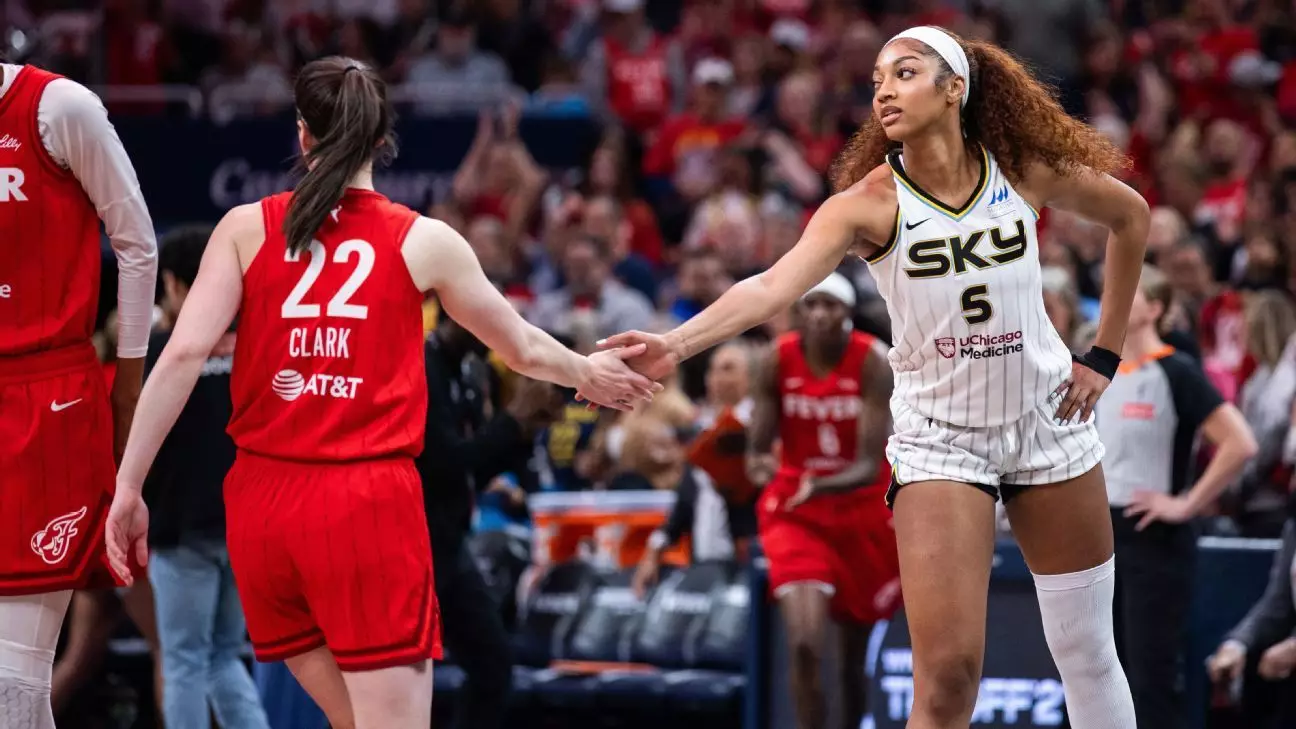The issue of fan conduct has reared its ugly head once again, and this time, it has struck right at the heart of women’s basketball. The Indiana Fever’s recent home game against the Chicago Sky saw an unfortunate incident that demanded immediate attention from the WNBA: allegations of demeaning comments directed at player Angel Reese. While the Fever players reported not hearing anything directly, the very need for an investigation underscores a growing problem that sports leagues either fail to recognize or choose to ignore. Such behavior is unacceptable, and it raises essential questions about the culture of sports fandom and the actions needed to address it.
Caitlin Clark, a standout guard for the Fever, articulated what many of us feel when she said, “There’s no place for that in our game, there’s no place for that in society.” It is a simple yet powerful statement that highlights the essential duty of not just the league but everyone involved—players, teams, and fans alike—to create a respectful sports culture. When comments aimed at players cross the line into hate, it isn’t just an individual failing; it’s a systemic issue that requires collective intervention. We must ensure that arenas are not just temples of sport but sanctuaries of esteem and respect.
Defusing Tensions: The Role of Players and Fans
During the game in question, an incident unfolded that saw Clark fouling Reese, leading to a brief confrontation between the players. Although the situation was diffused when Aliyah Boston intervened, the ripple effects of this encounter were profound. The public’s reaction via social media hinted at an unwelcome atmosphere, and even participants in the game felt the tensions. Fans are allowed, even encouraged, to express their enthusiasm, but what are the boundaries? Why is it that fiercely supporting your team has evolved into vitriol directed at opposing players?
Aliyah Boston’s comments resonate deeply: “No type of hate is ever welcomed here.” These words should serve as a maxims for all sports enthusiasts. Fans need to understand that their support goes hand in hand with respect for all participants. Imagine if that player was your daughter—would that shift the way you viewed your role as a supporter at a game? This kind of empathy should inform our behavior; respect should reign supreme, regardless of the competition unfolding on the court.
The Weight of Responsibility on Organizations
The response from DeWanna Bonner, a veteran player in her 16th WNBA season, further illuminates the collective attitude within the Fever organization. “It’s zero tolerance,” she proclaimed. Such a straightforward policy should be the gold standard—no team should stand by in silence when hateful behavior infiltrates the environment of its games. The Fever’s commitment to creating a supportive atmosphere sets a foundation that we urgently need across all sporting disciplines.
It is vital that organizations not only voice support against hate but back it up with action. Treating players with kindness and respect is not merely a recommendation; it’s an obligation that must be woven into the fabric of every game-day experience. If teams foster an environment where empathy is a priority and hostile behavior is actively combated, we’ll eventually witness a cultural shift.
The Reinforcement of Values: A Lesson for All
What’s at stake here is not just the reputation of the league or the teams involved but the very essence of sportsmanship itself. Sports are meant to be an escape from the harsh realities of life, and a space to celebrate talent and camaraderie. Therefore, the narrative surrounding player interactions should never delve into a dark domain where hate thrives.
The events surrounding the allegations during the Fever and Sky match should serve as a critical wake-up call. We need transparent dialogue about what hate looks like and how it affects the game, adding layers to the athletes’ performance that aren’t just about talent but morality as well. It’s a shared responsibility that extends beyond athletes—it includes every single fan who dons a jersey or holds a sign.
In a world that is increasingly polarized, the WNBA has an opportunity to lead by example. It must ensure its arenas remain bastions of respect and sportsmanship. Let’s rise as a collective body of supporters, players, and organizations committed to eradicating hate from the beautiful game, making it a safe haven for all who cherish it.


Leave a Reply